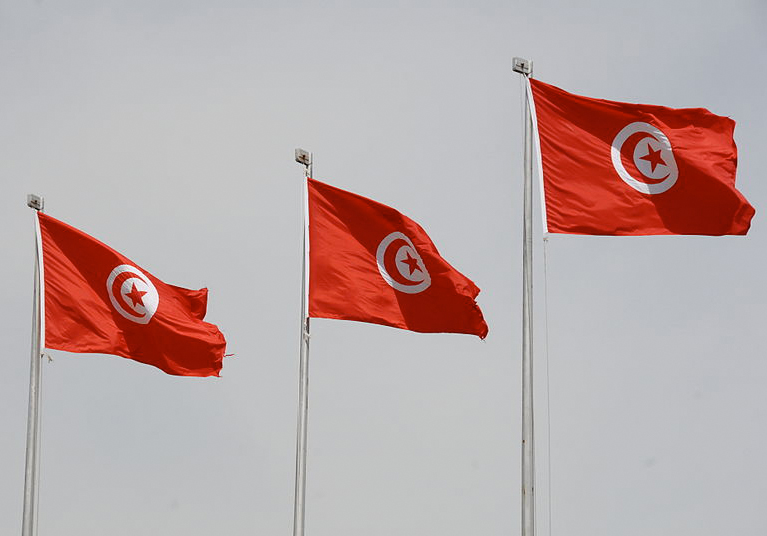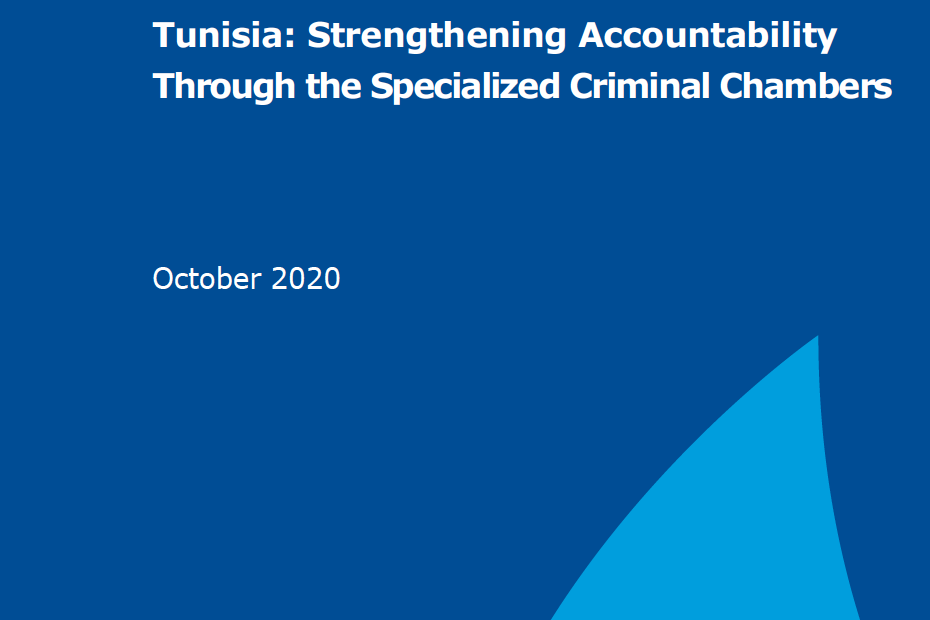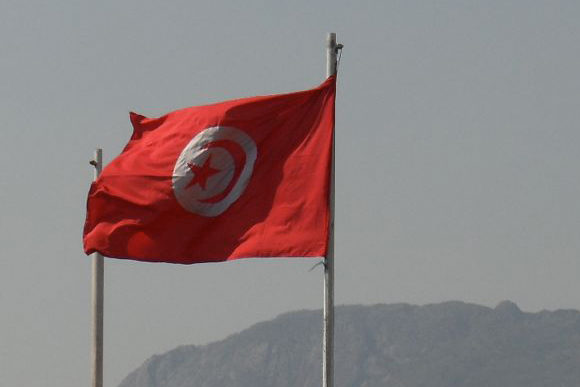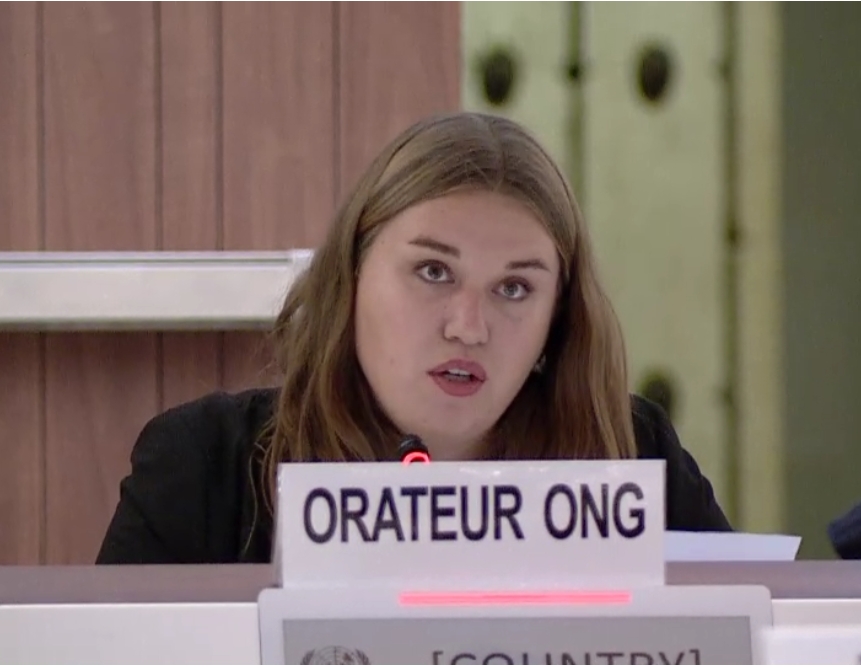
Oct 22, 2020
In a publication released today, the ICJ called on the Lebanese authorities to remove obstacles and eradicate harmful practices in the administration of justice impeding the realization of women’s and girls’ access to justice for sexual and gender-based violence (SGBV).
This includes ensuring the rights of victims to an effective remedy and reparation, and by combatting the prevailing impunity in the country for such offences.
The report Accountability for Sexual and Gender-Based Violence in Lebanon: Guidance and Recommendations for Criminal Justice Actors (available in English and Arabic) concludes that legislative and procedural gaps within the Lebanese framework for the investigation, prosecution and adjudication of SGBV offences foster and perpetuate a systematic denial of effective legal protection and access to justice and effective remedies for women and girl victims of SGBV.
Moreover, the inadequacy of criminal justice responses to SGBV victims has been compounded by the 2020 Coronavirus pandemic, with studies finding that SGBV has surged amid government-imposed confinement measures.
Recalling the recommendations issued in its July 2019 report, Gender-based Violence in Lebanon: Inadequate Framework, Ineffective Remedies – which called on the Lebanese authorities to fully criminalize and sanction violations of women’s human rights, including by repealing and amending provisions that discriminate against women – the present memorandum aims to furnish Lebanon’s criminal justice system actors with guidance and recommendations to maximize the effectiveness of the investigation, prosecution and adjudication of SGBV cases, until the authorities adopt comprehensive legislative amendments and necessary protocols.
While efforts by the Lebanese authorities to combat SGBV are laudable, they have been piecemeal, and major obstacles continue to result in access to justice failings.
In their present form, existing laws and policies are inadequate and ineffective, and fail to sufficiently address the complexities and multiple facets of the SGBV phenomenon, ultimately entrenching impunity for SGBV offences.
“Delivering justice to victims/survivors of SGBV in a meaningful way involves not only developing a legal framework that robustly protects women’s human rights, but also ensuring effective policies and practices in the administration of justice,” said Said Benarbia, Director of the ICJ’s Middle East and North Africa Programme.
“The Lebanese authorities should overhaul the legal framework and procedures governing criminal justice responses to SGBV with a view to adopting timely protective measures for all SGBV victims without discrimination, and to making clear, gender-sensitive guidelines and protocols available to criminal justice actors and healthcare practitioners dealing with SGBV victims.”
The new memorandum concludes that criminal investigations and prosecutions of SGBV offences are frequently undercut by discriminatory practices and bias against women – including attitudes that tend to trivialize, justify or deny SGBV – and by false narratives about victims’ backgrounds and behaviours thriving, in part, because of the absence of professionalized gender-sensitive investigations and prosecutions, including evidence-gathering procedures.
“Those conducting criminal investigations and prosecutions must minimize the burden on victims so as to avoid their secondary victimization, and refrain from engaging in gender stereotyping, victim-blaming and other harmful practices that undermine the rights of victims,” Benarbia added.
“Criminal justice actors must also challenge disproportionately lenient sentences, including those resulting from the unwarranted or unexplained use of so-called mitigating circumstances.”
Contact
Said Benarbia, Director of the ICJ Middle East and North Africa Programme, t: +41 22 979 38 17; e: said.benarbia(a)icj.org.
Download
Lebanon-GBV Guidance-Publications-Reports-Thematic report-2020-ENG (full report in English, in PDF)
Lebanon-GBV Memo story-News-2020-ARA (full story in Arabic, in PDF)
Lebanon-GBV Guidance-Publications-Reports-Thematic report-2020-ARA (full report in Arabic, in PDF)

Oct 19, 2020 | News
Tunisian Parliament should reject the revised Draft Law No. 91-2018 on the state of emergency when it is tabled in the plenary session starting tomorrow, said the ICJ today.
The Draft Law is inconsistent with the rule of law and Tunisia’s international human rights obligations and should be considered further to ensure its compliance with international law and standards.
The Draft Law was approved by the Parliament’s Committee on Rights, Freedoms and External Relations on 15 May 2019. Articles 2, 3 and 4 of the Draft Law authorize the President to declare a state of emergency for one month, renewable once, “in the event of catastrophic events” or “imminent danger threatening public order and security, the security of people and institutions and the vital interests and property of the state.”
Tunisia has remained under a continuous state of emergency since 24 November 2015.
“The Draft Law would entrench the President’s power to unilaterally determine what constitutes an emergency on broad grounds,” said Said Benarbia, the ICJ’s MENA Programme Director.
“It should be amended to enhance legislative oversight over the declaration of the state of emergency, provide for effective judicial review over emergency measures, and ensure that such measures do not unlawfully infringe on the enjoyment of recognized rights and freedoms.”
Under the law, regional governors could impose restrictions on movement and prohibit gatherings where necessary for “the maintenance of security and public order.” They could suspend the activities of associations that they decide act in a manner “contrary to public order and security” that “obstructs the work of the public authorities”. The Minister of Interior may also order house arrest and other measures against anyone deemed to “hamper public order and security”, including by summoning them to appear at the police station twice a day and intercepting their communications and correspondence.
The ICJ stressed that these measures risk interference with a number of rights, including freedom of expression, association, assembly, movement and the rights to liberty.
“The proposed law would entrench opportunities for Tunisian authorities to continue perpetrating abuses of human rights under arbitrarily imposed states of emergency,” said Kate Vigneswaran, ICJ’s MENA Senior Legal Adviser.
“It’s up to Parliament to ensure that appropriate safeguards are put in place which clearly limit the basis for imposing any restrictive measure to objective criteria and a real risk of harm, not the whims and political desires of the executive.”
The ICJ said that notwithstanding the inclusion of procedural safeguards – including registration of such decisions with reasons with the Public Prosecutor – the broad basis for the imposition of house arrest is concerning given Tunisian authorities’ abusive use of house arrest in the past.
Contact:
Said Benarbia, Director, ICJ Middle East and North Africa Programme, t: +41-22-979-3817; e: said.benarbia(a)icj.org
Kate Vigneswaran, Senior Legal Adviser, ICJ Middle East and North Africa Programme, t: +31-62-489-4664; e: kate.vigneswaran(a)icj.org
Tunisia-Law of Emergency-News-2020-ENG (story with additional information, PDF)
Tunisia-Law of Emergency-News-2020-ARA (story in Arabic, PDF)

Oct 8, 2020
In a briefing paper published today, the ICJ called on the Tunisian authorities to comply with their international law obligations and undertake substantial legal and policy reforms, strengthening accountability and delivering justice to victims of gross human rights violations.
Reforms are particularly needed to enhance the effectiveness of the Specialized Criminal Chambers (SCC).
They are also required to ensure that Tunisia fulfills its obligations under international law to criminalize, investigate and prosecute gross human rights violations, and to ultimately guarantee the rights of victims to an effective remedy and reparation.
Organic Law No. 53 of 2013 established the SCC to adjudicate past gross human rights violations; they have been operating since May 2018 but are currently facing a number of hurdles. Urgent amendments to the Criminal Code, the Code of Criminal Procedure and other relevant domestic law, as well as institutional, judicial and policy reforms are required to overcome these obstacles.
“The conduct of SCC trials in the absence of these reforms risks to seriously impede their effective operation in the short term, and to hamper Tunisia’s accountability efforts in the long term,” said Said Benarbia, the ICJ’s MENA Programme Director.
“The success of the transitional justice process and the fight against impunity rests largely on the political will of the Tunisian authorities to introduce these reforms, and to ensure that the SCC are able to carry out their work without hindrance.”
Tunisia’s domestic law fails to adequately criminalize crimes under international law over which the SCC have jurisdiction. Further, the application of a special procedure under the transitional justice framework for the investigation and prosecution of gross human rights violations has resulted in the Office of Public Prosecutor and other investigative authorities playing little to no role in the prosecution of SCC cases. In addition, this special regime gives rise to concerns about the collection, admission, exclusion and assessment of evidence during the trial stages.
All these obstacles have the potential to adversely impact the fair trial rights of the accused, the victims’ right to an effective remedy and reparation, as well as the participation and protection of victims and witnesses at trial.
Additionally, Tunisia’s domestic law does not sufficiently guarantee the rights of the accused, nor does it fully ensure the rights of the victims and their families or adequate protective measures for victims and witnesses.
The briefing paper addresses these issues and makes key recommendations on three areas of outstanding concern, namely:
- Adequate criminalization of crimes under international law and applicability of the principle of legality and non-retroactivity;
- Investigation and prosecution of gross human rights violations; and
- Collection, admissibility and assessment of evidence in the investigation, prosecution and adjudication of gross human rights violations.
In addition, in light of the recent annual judicial rotation, which has resulted in many of the SCC not having quorums and on trials been delayed, the ICJ calls on the High Judicial Council to ensure that the SCC judges have security of tenure, and that annual rotations do not undermine the SCC’s ability to conduct their work and dispense justice and ensure accountability for decades of gross human rights violations in Tunisia.
“The High Judicial Council should rapidly fill the posts that are currently vacant in the SCC and ensure that newly appointed judges receive timely and adequate training in transitional justice, as required by Organic Law No. 53 of 2013,” said Kate Vigneswaran, the ICJ’s MENA Programme Senior Legal Adviser.
“Moreover, safeguards should be put in place to ensure that changes in the composition of the bench mid-way through trials do not prejudice the fairness of the proceedings, and to ensure that those judges who continue hearing cases have the appropriate understanding of the evidence and arguments.”
Contact:
Said Benarbia, Director, ICJ Middle East and North Africa Programme, t: +41-22-979-3817; e: said.benarbia(a)icj.org
Kate Vigneswaran, Senior Legal Adviser, ICJ Middle East and North Africa Programme, t: +31-62-489-4664; e: kate.vigneswaran(a)icj.org
Tunisia-Strengthening Accountability SCC-Advocacy-Analysis brief-2020-ENG (full paper in English, pdf)
Tunisia-Strengthen Accountability-News-2020-ARA (full story in Arabic, pdf)
Tunisia-Strengthening Accountability SCC-Advocacy-Analysis brief-2020-ARA (full paper in Arabic, pdf)

Oct 6, 2020 | News
The Tunisian Parliament should amend or reject the revised Draft Organic Law No. 25-2015 on the protection of security forces scheduled for discussion in Parliament today, said the ICJ. The Law if adopted would reinforce impunity for violations committed by security forces and undermine the rule of law and human rights.
The revised Draft Law was approved by the Parliamentary Commission in July 2020, following unsuccessful attempts to adopt it in 2015 and 2017.
Article 7 of the Draft Law provides for the exoneration of security forces from criminal responsibility for using lethal force to repel attacks on a security building, when the force is necessary and proportional to the danger posed to the building. In 2017, the ICJ and other organizations urged Parliament to reject a prior draft which included the same provision.
“More than 10 years after the uprising, Tunisia’s security forces continue to enjoy impunity for decades of serious human rights violations,” said Said Benarbia, the ICJ’s MENA Programme Director.
“The Parliament should adopt all the effective measures at its disposal to end such impunity, not entrench it by allowing the use of lethal force when it’s not strictly necessary to protect lives.”
Article 7 of the Draft Law would preserve the operation of Law No. 69-04, which permits the use of firearms to defend property, “mitigate” a resistance, or stop a vehicle or other form of transport in the context of public meetings, processions, parades, public gatherings, and assemblies. It allows for the use of lethal force to disperse an unlawful gathering where other means of dispersal have failed.
Under international law, including the United Nations Basic Principles on the Use of Force, the intentional use of lethal force must be reasonable, necessary and proportional, and is only permissible if strictly necessary to protect life from an imminent threat to life, not a threat to property.
In the context of non-violent assemblies, the use of force should be avoided and, where unavoidable, restricted to the minimum extent necessary against only those individuals posing an imminent threat of death or serious injury.
The Draft Law appears to preserve an exemption under article 42 of the Criminal Code and Article 46 of Law No. 82-70 on the Statute of Internal Security Forces of 6 August 1982. Article 42 of the Criminal Code provides that a person is not liable for crimes under the Criminal Code, including homicide, if their acts were carried out pursuant to other laws or orders from a competent authority. Article 46 of Law No. 82-70 limits this immunity in relation to orders given to officers of the Internal Security Forces by requiring the orders be given “by their superior in the framework of legality.” Under international law, superior orders cannot serve as a ground of defence to a crime of unlawful killing by a State agent, such as a member of a security force.
“The Tunisian Parliament should reject the Draft Law and conduct a complete review of all laws regulating the conduct of the security forces to ensure they meet standards necessary to protect the population from the excesses demonstrated in the past,” said Kate Vigneswaran, the ICJ’s MENA Programme Senior Legal Adviser.
“Members of the Parliament should send a clear, unequivocal message that the impunity of the security forces can no longer be tolerated.”
Contact:
Said Benarbia, Director, ICJ Middle East and North Africa Programme, t: +41-22-979-3817; e: said.benarbia(a)icj.org
Kate Vigneswaran, Senior Legal Adviser, ICJ Middle East and North Africa Programme, t: +31-62-489-4664; e: kate.vigneswaran(a)icj.org
Tunisia-draft law security forces-News-2020-ARA (story in Arabic, PDF)

Oct 5, 2020 | Advocacy, Non-legal submissions
The ICJ today highlighted the need for accountability for crimes under international law in Libya, and concerns for the independence of lawyers in Ukraine, at the UN Human Rights Council in Geneva.
The oral statement, delivered in the general debate on technical cooperation and capacity building, read as follows:
“Madame President,
The International Commission of Jurists (ICJ) welcomes the oral updates on Ukraine and Libya.
Technical assistance and capacity building objectives in Libya can only be achieved if the protection of human rights, entrenchment of the rule of law and pursuit of accountability are prioritized.
States should support the Fact-Finding Mission by extending its reporting mandate, increasing contributions to the UN budget necessary to establish the Mission’s secretariat, and fully cooperating with it.
States should also support the Berlin Process working groups, ensuring that the political and accountability pillars work in unison and making meaningful commitments to implement their recommendations.
Across all of Ukraine, lawyers continue to be associated with their clients and may face consequences for representing them by private individuals and also through abuse of legal proceedings. High-profile cases bear risks for independent lawyers who choose to diligently represent their clients.
The decline in security of lawyers in and outside of courts, and the problem of threats, harassment, and attacks against lawyers, should be addressed as a matter of priority, including through technical cooperation. Measures should be taken to build the capacity of law enforcement agencies and court security personnel to ensure that lawyers and others involved in court proceedings can work in an atmosphere free from intimidation, harassment, and improper interference.
Thank you.”









